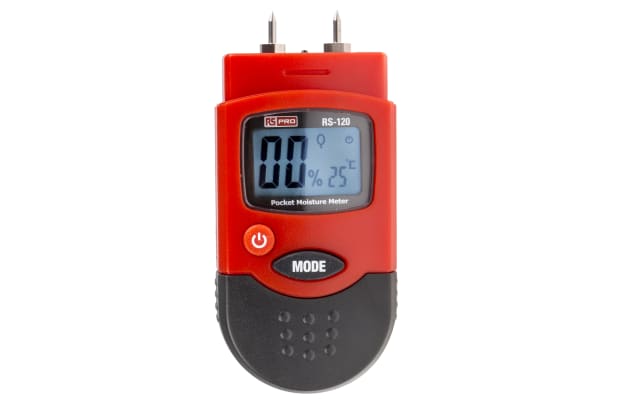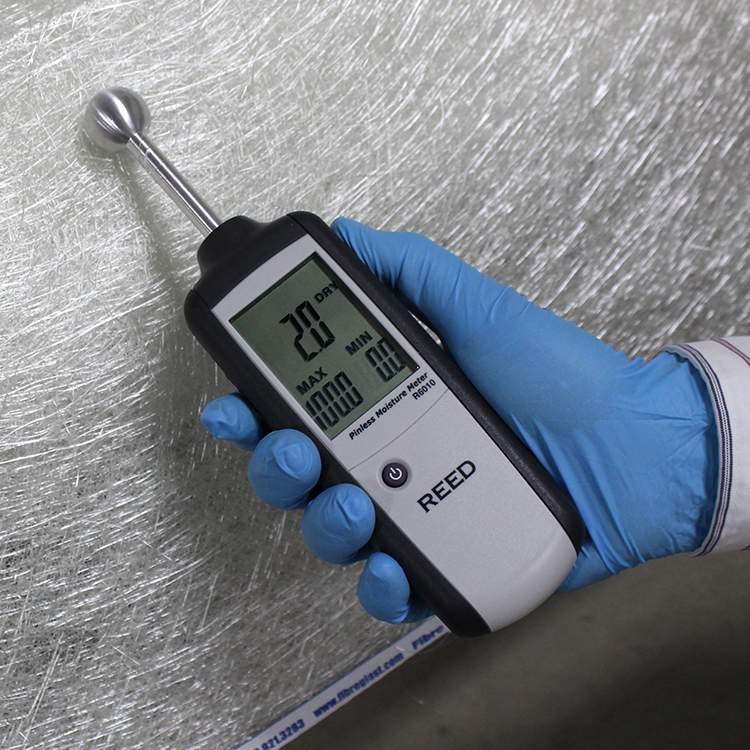The Ultimate Overview to Moisture Meters: A Comprehensive Overview and Just How They Can Conserve You Cash
In the realm of building maintenance, building and construction, and numerous markets, the value of precisely measuring moisture degrees can not be overstated. Dampness meters offer as vital tools in identifying and monitoring moisture content in materials, helping in stopping pricey problems and guaranteeing the quality of items. Comprehending the subtleties of different sorts of dampness meters, their applications, and the potential cost-saving advantages they provide can be a game-changer for specialists and services alike. Discovering just how these devices can not only streamline procedures but additionally contribute to economic cost savings is a journey worth getting started on.
Types of Moisture Meters
One common type is the pin-type moisture meter, which gauges the electrical resistance in between 2 pins put right into a product. Pinless moisture meters, on the other hand, use electromagnetic sensing unit plates to scan a larger area without triggering damages to the product's surface area.
Infrared dampness meters determine the thermal buildings of a product to determine its moisture content non-invasively, making them valuable for applications where pin or pinless meters might not be appropriate. Comprehending the various types of moisture meters available can aid markets select the most suitable tool for their specific dampness dimension requirements.

Benefits of Using Moisture Meters

In addition, using moisture meters can lead to raised power performance. In farming settings, dampness meters play a crucial role in maximizing plant returns by allowing farmers to keep track of dirt moisture levels and make notified irrigation decisions.
How to Pick the Right Moisture Meter
Picking the proper wetness meter involves considering vital aspects such as material compatibility, measurement array, and calibration precision. When choosing a moisture meter, it's vital to ensure that the meter is ideal for the certain product you will certainly be screening. Various products have varying electrical residential or commercial properties that can influence wetness analyses, so picking a meter made for your material is vital for accurate outcomes. Furthermore, consider the dimension series of the dampness meter. Guarantee that the meter can find wetness degrees within the range needed for your applications. Calibration accuracy is one more crucial factor to maintain in mind (Moisture Meter). Choose a dampness meter with trustworthy calibration to ensure regular and accurate analyses. Some meters may need routine calibration adjustments, so comprehending the calibration process is vital. By thoroughly examining these factors, you can select a dampness meter that meets your demands and provides precise dampness dimensions for your projects.
Appropriate Strategies for Moisture Meter Use
To make sure exact dampness readings and make best use of the effectiveness of a wetness meter, using proper techniques is necessary. When making use of a pin-type dampness meter, insert the pins or probes into the product being checked up until they make complete call. Make certain the pins are perpendicular to the surface to obtain one of the most precise reading. For pinless moisture meters, hold the device flat against the material and relocate it gradually to cover the whole location for a typical analysis. It's vital to adjust the moisture meter according to the material being tested to enhance precision. Take numerous analyses throughout the surface and average them out for a more dependable result. Additionally, ensure that the product being tested is accommodated to the environment to protect against manipulated analyses. Normal upkeep of the wetness meter, such as cleaning up the pins or sensor, is also vital to ensure exact and regular readings. By following these proper strategies, users can depend on their dampness meter to supply credible moisture degrees, helping in stopping expensive damage or making certain top quality in different applications.

Expense Savings Via Moisture Meter Applications
Just how can the strategic usage of wetness meters lead to substantial price savings across different sectors? In the agriculture industry, moisture meters aid in figuring out the optimum time for collecting crops, avoiding excess or over-drying dampness that can influence the last item's top quality.

Additionally, in the food handling industry, dampness meters are vital for keeping track of item high quality and ensuring compliance with safety and security regulations. By precisely determining dampness web content in foodstuff, suppliers can protect against perishing, maintain quality, and lower waste, causing substantial price financial savings. Generally, the calculated application of wetness meters is an important investment that can lead to considerable expense reductions and improved performance throughout different industries.
Verdict
In verdict, dampness meters are important devices for determining and identifying moisture degrees in numerous products. By making use of the ideal dampness meter and following correct methods, customers can properly protect against costly damages triggered by excess moisture.
Moisture meters offer as important tools in detecting and keeping an eye on moisture material in products, assisting in preventing expensive problems and ensuring the high quality of click for info items. Infrared dampness meters gauge the thermal residential properties of a product to establish its moisture web content non-invasively, making them helpful for applications where pin or pinless meters might not be suitable.Moisture meters provide vital benefits in properly monitoring and analyzing wetness degrees in diverse products and environments. In agricultural settings, wetness meters play a critical duty in maximizing plant yields by allowing farmers to keep an eye on soil moisture levels and make notified irrigation decisions.In conclusion, dampness meters are beneficial devices for identifying and gauging dampness degrees in different pop over to this web-site materials.